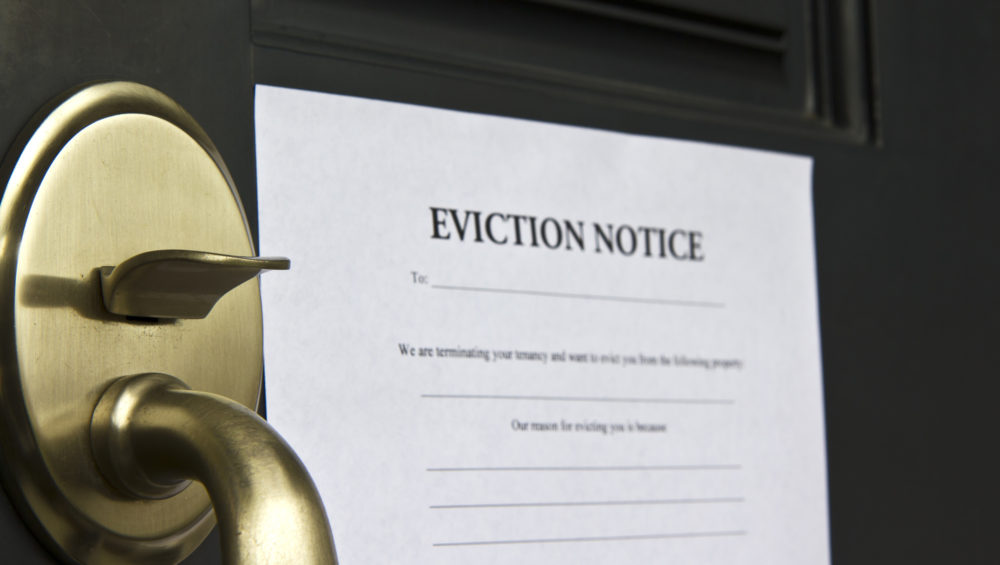Eviction is every tenant’s worst nightmare. 30 to 40 million people are at risk of eviction due to the COVID-19 pandemic.
Landlords and property managers are feeling the pain as well. The process to evict a tenant is often the last resort after a tenant has drained money and resources. It can be difficult to start and manage.
What are the laws that govern eviction guidelines? What reasons must a manager have to remove someone from their property? What documents should a manager draft, and when is it time to go to court?
Answer these questions and you can navigate through the eviction process without wasting time. Here is your quick guide.
Study Eviction Laws
Some national guidelines affect the eviction process. Certain agencies can issue a moratorium on evictions for nonpayment of rent, including the CDC.
The Fair Housing Act creates anti-discrimination guidelines for the eviction process. No landlord can remove someone from a property because of their immutable characteristics or their religion. People who believe that a landlord is discriminating against them can file a complaint with the federal government.
Each state has its own laws for eviction. In Tennessee, a landlord may evict a tenant after they are late on their rent for five days. In Mississippi, a landlord may evict a tenant after they are late for any amount of time.
Municipalities can also provide their own eviction laws. Before you begin accepting tenants, you should study federal, state, and local eviction guidelines. Get a lawyer if you have trouble parsing through the details and keep legal texts on hand.
Find Good Reasons to Evict a Tenant
You must have a good reason that you can substantiate if you want to remove a tenant. The most common reason tenants get removed is a failure to pay rent.
You can begin the process of evicting a tenant after they fail to pay rent once. But most landlords wait until a tenant has a pattern of paying late before evicting them. It may be harder to substantiate your case for a one-time matter.
Property damage is another common reason for eviction. Many courts will grant an eviction for someone who has caused damage to the foundation, common areas, or walls of a property.
Using the property for illegal activity is also substantial grounds for eviction. Less common yet possible reasons include disrupting other tenants and staying after a lease has expired.
Keep copies of all of your contracts on hand with timestamps. If a tenant has caused damages, take photographs of the damages. Keep receipts for repairs you had to make, even minor fixes like new paint jobs.
Draft and Issue a Formal Eviction Notice
The first step on how to deal with bad tenants is to talk to them about your problem. You may be able to come to an agreement on late payments or property damage.
If that fails, you can continue with the eviction process by filing an eviction notice. There are several types of notices you can draft.
A notice to pay rent or quit gives a tenant a few days to pay their past-due rent. If they don’t want to pay, they can leave of their own volition.
A cure or quit notice resolves a situation in which the tenant has violated a lease condition. They have a few days to correct the violation, or they have to leave.
An unconditional quit notice forces the tenant to leave right away. They have no opportunity to resolve their violation, even if they owe a significant amount of money. It is best for situations where a tenant poses a threat to you or another tenant.
Figure out the right type of notice for you, then draft one with legal assistance. Provide clear details on when the tenant must leave and how much time they have to respond to the notice.
Prepare Your Filing
If the tenant remains at your property, you can file the eviction in court. You must provide proof that the tenant has had time to respond to your notice.
You can then schedule a date for the proceedings to begin. Your lawyer can file the necessary paperwork, which you can corroborate with evidence of your tenant’s violations. You should also give your lawyer access to your original lease agreement and any payment records you have.
The tenant has the right to contest the notice with legal representation. Be prepared and maintain your composure while you are in court. If the tenant fails to show, you will likely win your case.
Remove the Tenant From Your Property
If you win your case, the judge will give your tenant some time to leave your property. Do not interfere or communicate with your tenant while they are preparing to leave.
If they won’t go, you can contact the police. They can issue a notice demanding that your tenant leave, and they can escort the tenant from your property.
After they have left, you can file a civil lawsuit to collect on their unpaid rent. You may have to go to small-claims court if the rent was small.
How to Evict a Tenant
You need to know many things to evict a tenant. Federal laws prohibit discrimination, while state laws can vary significantly.
Make sure you have a good reason with proof to back your claim. Talk to your tenant, and then give them a notice.
Go to court if they don’t respond to you. File all paperwork and attend all hearings, then step out of the way so they can leave. Call the police only if they won’t go.
Get help with all your property management needs. Reedy & Company has nearly 20 years of experience in management. Contact us today.



